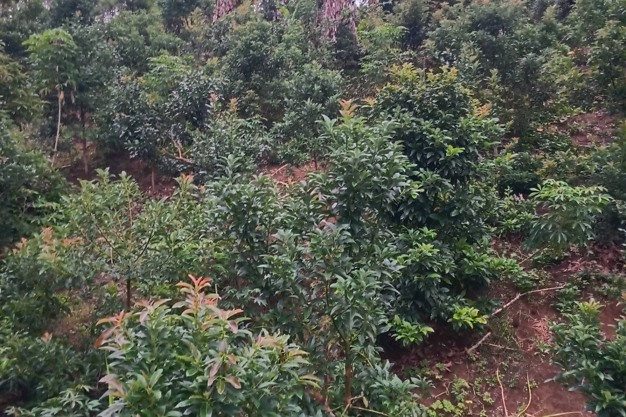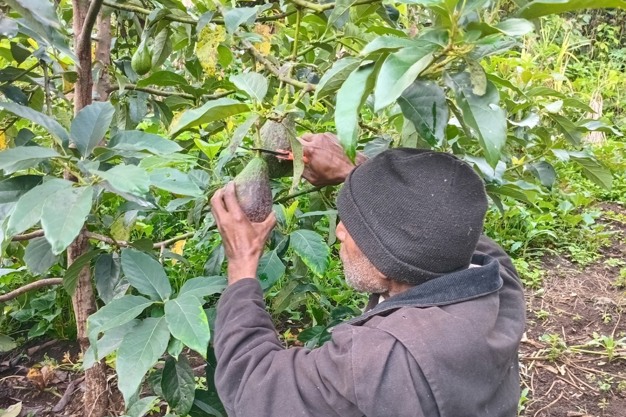An aspiring avocado grower in the Central Highlands of Papua New Guinea has said that avocados can be grown commercially after he picked the first avocado fruits from his trial orchard last December (2024).
Solepa Aganisafa first embarked on the avocado journey in 2021 and established his orchard of 200 plus avocado trees in 2022. His orchard has Hass, Reed, Fuerte, and Pinkerton avocado varieties. He uses the Reed avocado variety as rootstock because of the bigger size of the seed. He said the main commercial avocado variety, Hass, can be grown at an altitude of 800 to 2500 metres above sea level. The Highlands and other higher altitude regions of the country can grow avocado commercially due to the mild climate.
 © Solepa Aganisafa
© Solepa Aganisafa
"No one has grown avocados on a large scale for various reasons. One is the lack of an accredited nucleus avocado nursery in the country to supply cleaned, disease-free avocado seedlings. The second reason could be the lack of government intervention, such as research into alternative crops such as avocado, mango, apple and others that have the potential of being developed into industries of their own. And also, the fear of doing something they have never done before on the part of growers are some of the limiting factors," explains Solepa.
However, there is a limited supply of avocados that come to the market during the season, which runs from February to May annually. According to a personal survey, Solepa undertook of avocado vendors at the local Goroka market in 2021, he found out that no one has planted more than ten avocado trees or grown avocado commercially. He said there is demand for locally grown avocados in the coastal urban towns, but there is no consistency in volume and quality. Further, no one knows the varieties of avocados growing in their backyard.
 © Solepa Aganisafa
© Solepa Aganisafa
"I have 239 plants planted at a spacing interval of 3m x 3m - high density planting. With such spacing, you can plant 400 avocado seedlings per hectare. No one has grown avocados on a large scale here. I have not had any significant volumes yet, but I picked my first fruits in December."
There are small volumes imported from Australia, mostly Hass avocados for the expatriate community in Port Moresby.
As the President of the Eastern Highlands Agricultural Society, Solepa is currently working closely with the Department of Agriculture and Livestock (DAL), the National Agricultural Quarantine and Inspection Authority (NAQIA), National Agricultural Research (NARI), and other stakeholders to source cleaned planting materials from an accredited nursery in New Zealand.
"For an avocado industry to emerge, there will need to be massive investment backed by proper research (including market potentials) into the viability of the project," concludes Solepa.
For more information:
Solepa Aganisafa
solepa494@gmail.com
